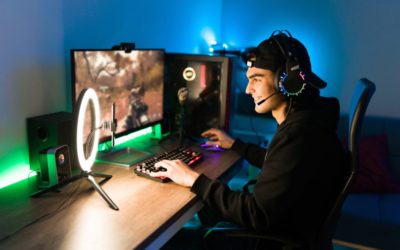Quick Hits
Daily brief research updates from the cognitive sciences

Who would have thought that traffic noise could impact cognitive development of kids? Well according to this recent piece of research it can.
Are you sure?
Well, these researchers from the Barcelona Institute for Global Health designed a pretty comprehensive study. They measure the cognitive ability of 2’680 children over 12 months on attention and working memory. They were tested four times over this 12-month period.
They attended 38 different schools and noise was measured in front of the school, in the playground, and in the classrooms.
What were the results?
The results were pretty clear. Those attending schools with higher noise levels had slower cognitive development. They were able to quantify this:
-
- A 5 dB increase in outdoor noise levels resulted in working memory development that was 11.4% slower than average
- A 5 dB increase in outdoor noise levels resulted in complex working memory development that was 23.5% slower than average. Similarly,
- A 5 dB increase in outdoor noise levels resulted in attention capacity development that was 4.8% slower than average.
Isn’t this a result of socioeconomic factors rather than noise?
It could be that poorer kids are at schools that have more noise, and that these kids are at multiple disadvantages. However, this association was dependent on noise not location. There were also other interesting correlations. Notably that noise variation in the classroom seemed to have particularly disruptive effective and this was more indicative than the average noise level.
Similarly, a noise map was used to estimate noise levels at each child’s home, and this did not seem to impact cognitive development.
It seems that noise, particularly with variation within the classroom is most disruptive, likely because this is where critical aspects of cognitive development take place.
Obviously, this would need to be followed up with more studies in more locations but, for the moment this is pretty worrying and something else that local and education authorities need to take into account●

Andy Habermacher
Andy is author of leading brains Review, Neuroleadership, and multiple other books. He has been intensively involved in writing and research into neuroleadership and is considered one of Europe’s leading experts. He is also a well-known public speaker speaking on the brain and human behaviour.
Andy is also a masters athlete (middle distance running) and competes regularly at international competitions (and holds a few national records in his age category).
Reference
Maria Foraster, Mikel Esnaola, Mónica López-Vicente, Ioar Rivas, Mar Álvarez-Pedrerol, Cecilia Persavento, Nuria Sebastian-Galles, Jesus Pujol, Payam Dadvand, Jordi Sunyer.
Exposure to road traffic noise and cognitive development in schoolchildren in Barcelona, Spain: A population-based cohort study.
PLOS Medicine, 2022; 19 (6): e1004001
DOI: 10.1371/journal.pmed.1004001
More Quick Hits
What is the Impact of Gaming on Teenage Mental Health?
Many parents might be worried that gaming will have negative impacts on their children’s mental health – not true. Or only for a small subset…
Why Children Learn More Quickly Than Adults
It might be obvious that kids learn quicker than adults – but this shows for the first time why.
Right, so artificial networks also need sleep!
We need sleep but we are biological entities – that artificial networks improve performance with sleep is pretty fascinating, and insightful.
Making Voting More Effective for Better Decisions
Most of the most important decisions made in business and society are the result of votes – but not all voting methods are equally effective…
We’re Bad at Remembering How Happy We Were
The past ain’t always better – according to this latest research at least…
100 Years of Research Reveal the Most Effective Methods for Learning
New technologies, new research? No, the old methods are the best, and it’s surprisingly simple.






